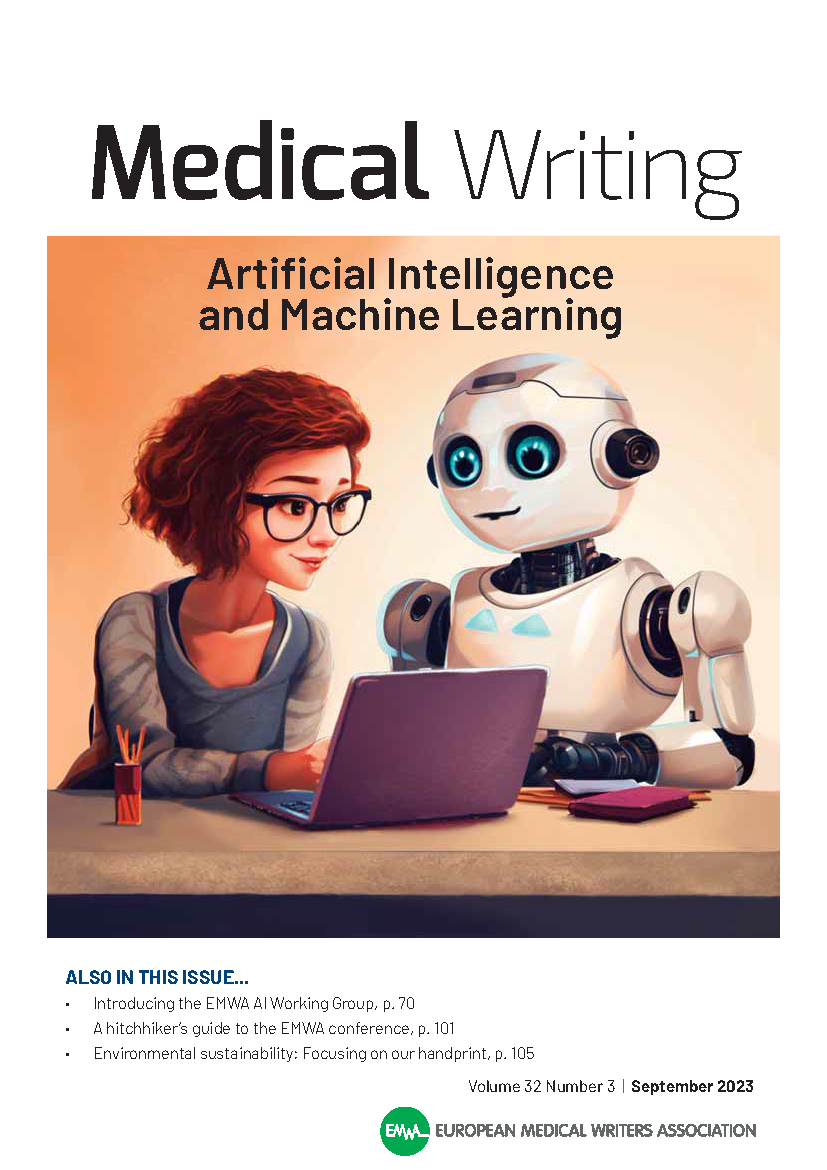
Volume 32, Issue 3 - Artificial Intelligence and Machine Learning
AI language models are transforming the medical writing space – like it or not!
Author: Katja Martin
Abstract
Whether you’re an early adopter, an occasional user, or yet to acknowledge its transformative potential, artificial intelligence (AI) – specifically generative AI applications underpinned by large language models – is undeniably shaping our present and destined to influence the future of medical writing. Achieving a comprehensive understanding of these models can pave the way for their optimal application in areas where they excel. Additionally, this understanding helps to maintain a realistic, balanced perspective, allowing us to avoid the pitfalls associated with excessive or unfounded fear stirred by the current AI hype and related exaggerated promises. A selection of AI applications offers insights into specific tasks for which generative AI can be effectively utilised. These applications can truly make a difference by saving time, streamlining workflows, and potentially enhancing the quality of the resulting outputs.
Medical Writing. 2023;32(3):22–27. https://doi.org/10.56012/qalb4466
 Download the full article
Download the full article
Search
Articles
Links
Editoral Board
Editor-in-Chief
Co-Editors
Senior Editor
Victoria White
Managing Editor
Alicia Brooks Waltman
Associate Editors
Section Editors
AI/Automation
Biotechnology
Digital Communication
EMWA News
Freelancing
Gained in Translation
Getting Your Foot in the Door
Good Writing Practice
Pablo Izquierdo / Alison McIntosh
In the Bookstores
Publications
Medical Communications/Writing for Patients
Medical Devices
My First Medical Writing
News from the EMA
Pharmacovigilance
Regulatory Matters
Regulatory Public Disclosure
Louisa Ludwig-Begall / Sarah Kabani
The Crofter: Sustainable Communications
Veterinary Writing
Editors Emeritus
Layout Designer
Chris Monk
 Visit the EMWA website
Visit the EMWA website